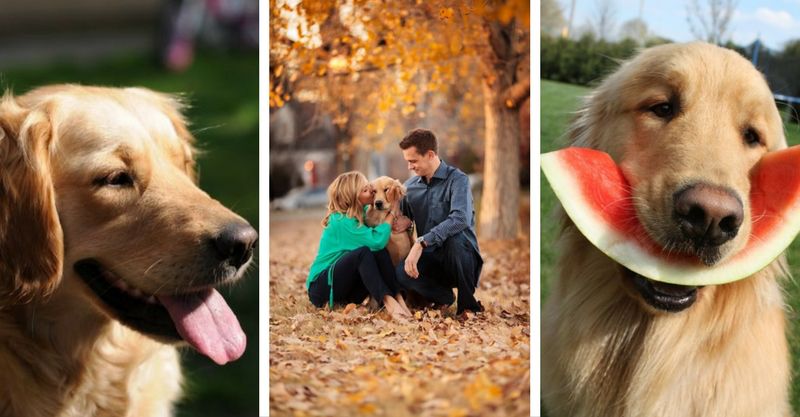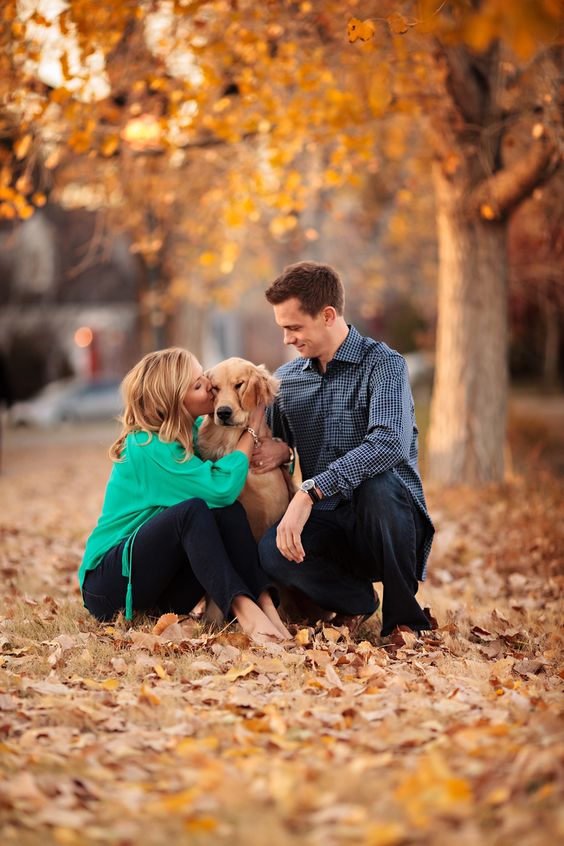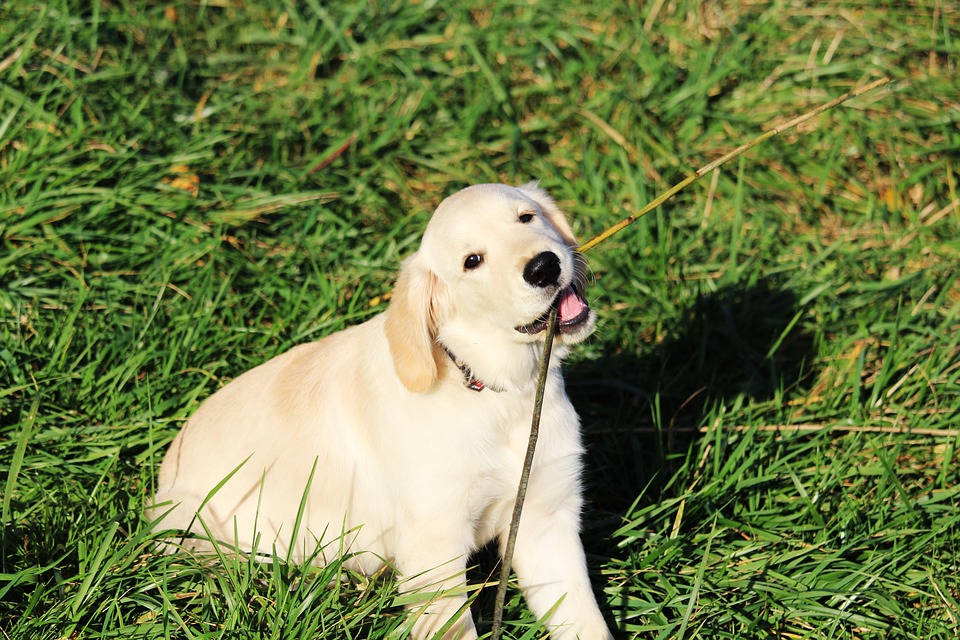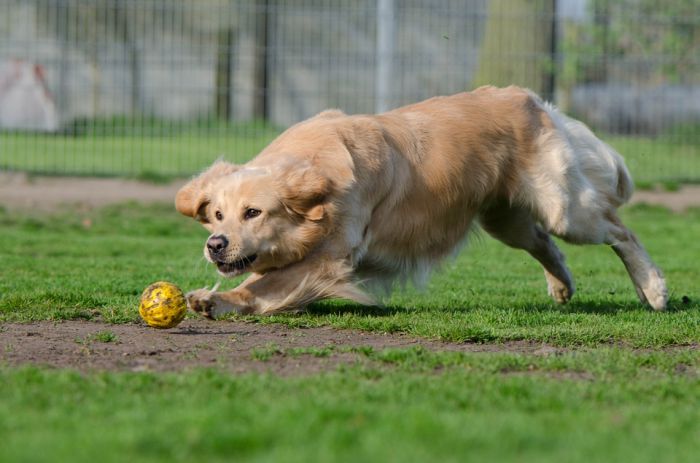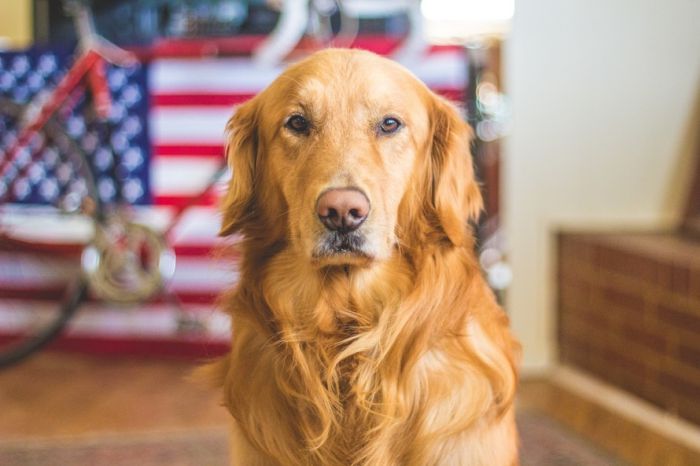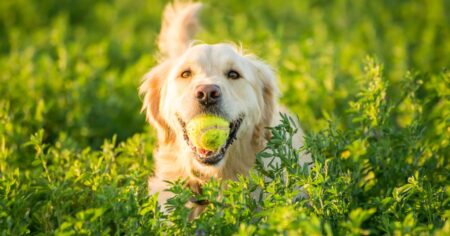With their gorgeous coats, big eyes, and friendly personalities, it’s no wonder that Golden Retrievers have been one of the most popular dog breeds in America for more than two decades.
They’re also doggie superstars, with many movie and TV appearances, including the wise Shadow in Homeward Bound, the dogs of the Air Bud film series and its Buddies spinoffs, and the loveable Comet from Full House.
While it’s easy to lose yourself in those soulful eyes, it’s important to remember that Golden Retrievers aren’t for everyone. As with all breeds, there are several things you need to consider before making a Golden part of your family.
Personality: Family-Friendly Companions
Photo: Credit
The Golden Retriever’s long-lasting popularity is due in part to its status as one of the most family-friendly dogs around. They are well-known for being patient and gentle with kids, but keep in mind that all dogs should be supervised around small children.
Goldens love attention, affection, and interaction. They tend to stick close to their humans and love to be petted. If you aren’t crazy about having a needy dog, or if your dog will spend a lot of time alone due to your schedule, a Golden might not be the best choice.
Goldens also don’t like being outdoor-only dogs – they want to be a part of the family. If you love snuggles or want a best buddy to stick by you through thick and thin, these beauties are an excellent choice.
Training: Are They Quick to Catch On?
Photo: Credit
Brains and beauty – Goldens are the total package. These smart dogs are people pleasers, making them easy to train, whether you’re housebreaking, crate training, or teaching commands. It’s best to start training as early in life as possible, but if you have an older dog, never fear.
Turns out, you can teach an old dog new tricks.
The key with Goldens – and most dogs – is positive reinforcement. That means you reward good behaviors with praise, affection, or treats, while ignoring or redirecting unwanted behaviors. Hitting and yelling will only make them fear you, and it will damage that all-important bond between you and your dog.
Exercise Needs: A Bundle of Energy
Photo: Credit
Retrievers are sporting dogs, which means they were bred for certain traits. In the case of Goldens, they were bred as hunting companions to track down and retrieve waterfowl that had been shot. Thanks to decades of breeding this trait into their genes, Goldens love games like fetch.
They also enjoy playing in the water, so if you have access to a space where your dog can run and swim safely, you will have one happy canine.
Goldens have a lot of energy to burn, so they need about 20 to 30 minutes of exercise twice a day. If you’re looking for a jogging or hiking companion, a Golden is ideal, but if you’re a total couch potato, you and a Golden may not be happy together.
When a Golden doesn’t have an outlet for his energy, he becomes destructive and will probably take it out on your sofa or your shoes.
Health Concerns: What to Watch For
All purebred dogs have specific health concerns, because by breeding them for traits like their pretty coat and friendly personality, breeders have limited the gene pool. As a result, purebred dogs are prone to certain diseases.
In Goldens, the most common health concerns are hip and elbow dysplasia, obesity, and eye diseases such as cataracts.
The number one killer of Goldens is cancer, and unfortunately, these lovely dogs are susceptible to a type called hemangiosarcoma. Regular check-ups are important to a Golden’s well-being.
If you can’t afford quality vet care, don’t get a Golden.
Grooming: Taking Care of That Beautiful Coat
Those luxurious golden coats come with a price: Goldens shed year-round, and they also have two extra-heavy shedding phases each year. If you can’t handle having long, yellow hair on your furniture, carpet, and clothes, don’t get a Golden.
If you think that’s a small price to pay for having such a wonderful dog in your life, prepare for a lot of grooming. They need to be brushed often, preferably daily but at least once a week, and they need a bath about every eight weeks.
Goldens are prone to skin diseases, such as allergic dermatitis, especially in a hot or moist climate. They can also get ear infections easily, so it’s important to clean their ears regularly. Like all dogs, they need their nails trimmed on a regular basis.
If you’re not comfortable doing this, have a groomer do it for you.
Diet: Are There Special Considerations?
Photo: Credit
Goldens love to eat. Because they’re large, active dogs, they need a lot of calories each day. Keep in mind that, because they tend toward obesity, you should limit their treats and avoid feeding them table scraps.
Adults need two to three meals a day, while puppies need higher number of smaller meals, depending on their age. Dogs in the Golden’s weight range of 50 to 75 pounds usually need two to two-and-a-half cups of dry food daily.
Look for a high-quality food that lists meat as the first ingredient, and watch out for foods that contain “fillers” like corn or wheat products. Not only are these foods less healthy than other types, these fillers may worsen skin allergies in Goldens.
If you’re up for the unique needs and challenges of the Golden Retriever breed, you will find yourself with a loving companion whose goofy antics will brighten even the cloudiest day.

